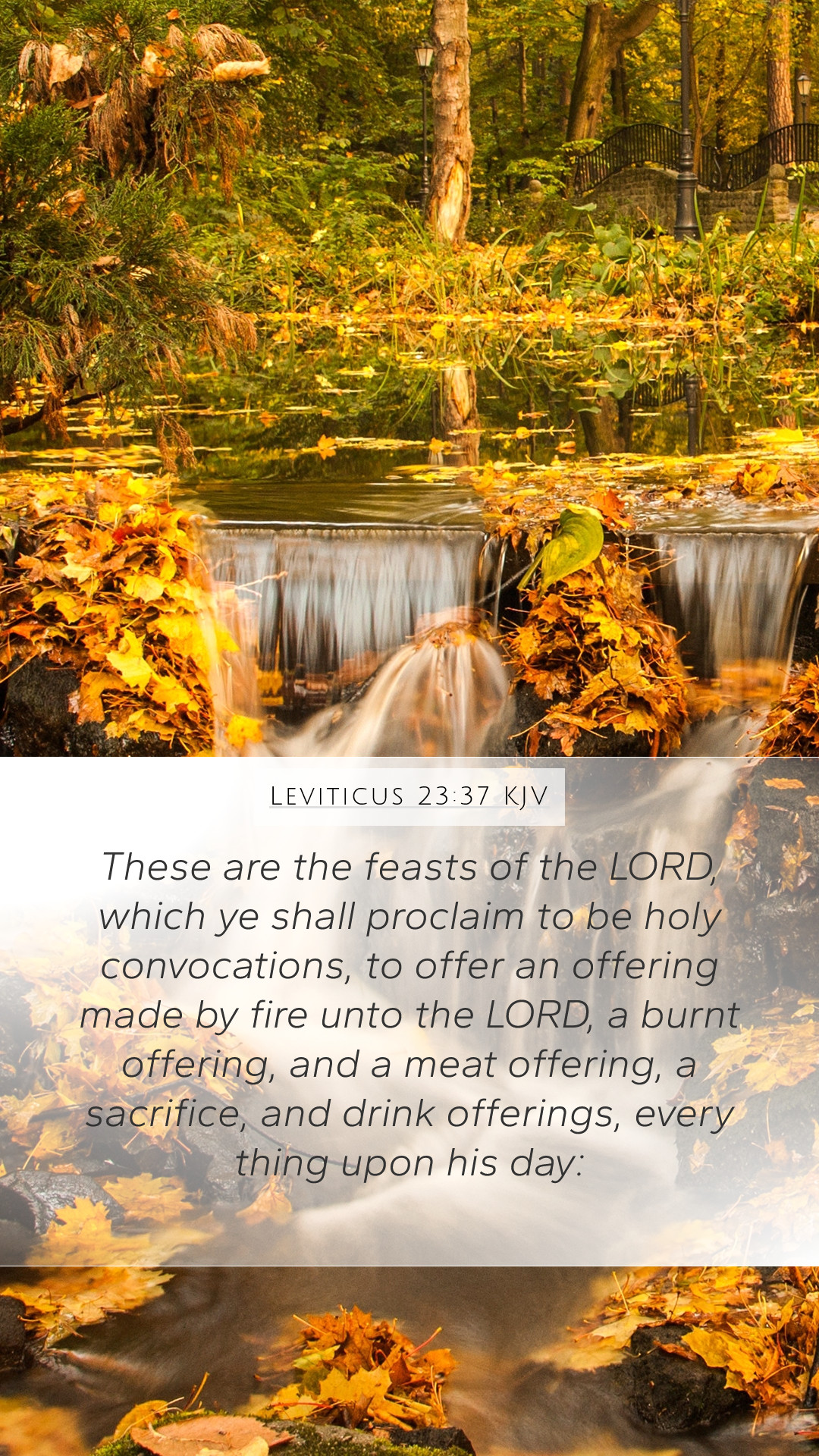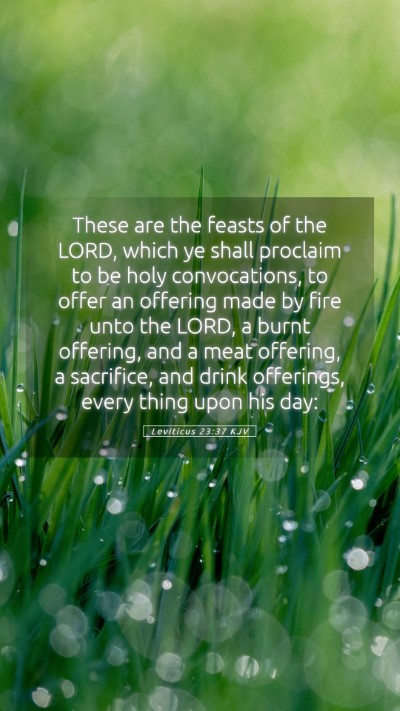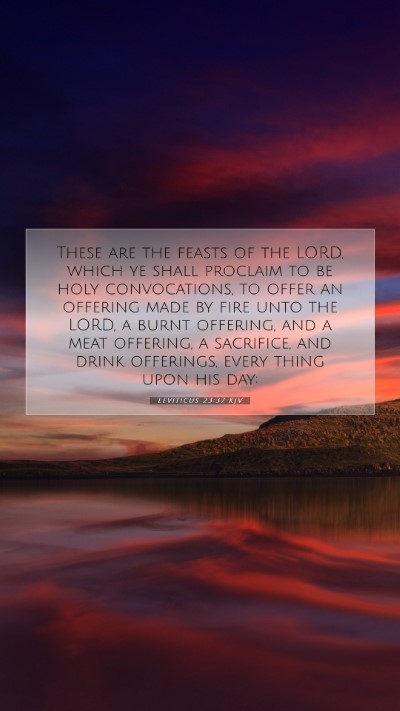Leviticus 23:37 - Understanding the Significance
Bible Verse: Leviticus 23:37 states, "These are the feasts of the LORD, which ye shall proclaim to be holy convocations, to offer an offering made by fire unto the LORD, a burnt offering, and a meat offering, a sacrifice, and drink offerings, everything upon his day."
Context and Overview
The context of Leviticus 23 revolves around the appointed feasts of the Lord, which served as significant ceremonial observances for the Israelites. Each feast had its purpose and meaning, designed to foster remembrance and worship of God’s provision and deliverance.
Bible Verse Meanings
According to Matthew Henry, this verse emphasizes the importance of the feasts as holy convocations where the people gathered to worship. The phrase "offerings made by fire" reflects the dedication and reverence with which these offerings should be presented to God.
Albert Barnes highlights that these feasts were integral to the national life of Israel, acting as times for communal gathering, reflection, and expression of gratitude. Each feast had a specific focus that underscored God's faithfulness and covenant with His people.
Adam Clarke elaborates by noting that the diverse types of offerings mentioned—burnt offerings, meat offerings, and drink offerings—illustrate the varied means through which worshipers could express their devotion. This variety affirms the richness and depth of worship that God desires from His people.
Deeper Insights from Commentaries
-
1. Importance of Holy Convocations: These gatherings were not mere traditions; they were commanded by God, emphasizing the necessity of communal worship and adherence to divine ordinances.
-
2. Offerings and Sacrifices: The offerings symbolize the Israelites' acknowledgment of God’s sovereignty and provision. They were acts of faith meant to restore fellowship with God.
-
3. Reflection of God’s Character: The detailed instructions on how to conduct offerings reveal God's holiness and the seriousness of approaching Him. It illustrates the need for purity and dedication in worship.
Applying Leviticus 23:37 to Daily Life
Understanding the significance of this verse can enrich one's personal and communal worship. It serves as a reminder that worship should be intentional, reverent, and rooted in a desire to honor God. In contemporary practice, this can translate into establishing regular times for corporate worship, prioritizing communal gatherings that focus on God's attributes, and preparing one's heart to offer praise and thanksgiving.
This passage also invites reflection on how individuals can create offerings in their lives—be it through service, generosity, or acts of kindness—as a means of worshipping God outside the traditional context of feasts.
Cross References
- Exodus 23:14-17: Discusses the three annual feasts.
- Deuteronomy 16:16-17: States the importance of presenting offerings during these feasts.
- Psalm 122:1-4: Highlights the joy of going to the house of the Lord for worship.
Conclusion
Leviticus 23:37 provides foundational understanding for the feasts that shaped Israelite worship, emphasizing the need for holy convocations and dedicated offerings. By reflecting on this verse, Christians today can gain insights into the nature of worship and the significance of communal gatherings. Such understanding aids in interpreting the broader narrative of God's relationship with His people throughout Scripture.
Related Topics for Further Study
If you are interested in further exploring the themes in Leviticus 23:37, consider delving into:
- In-depth Bible verse analysis of Old Testament feasts.
- Understanding difficult Bible passages regarding worship practices.
- Historical context of Bible verses related to sacrificial offerings.


